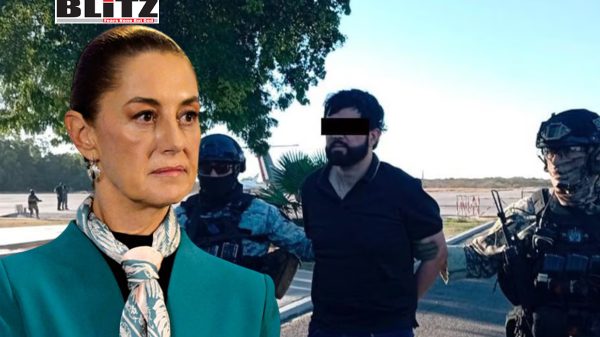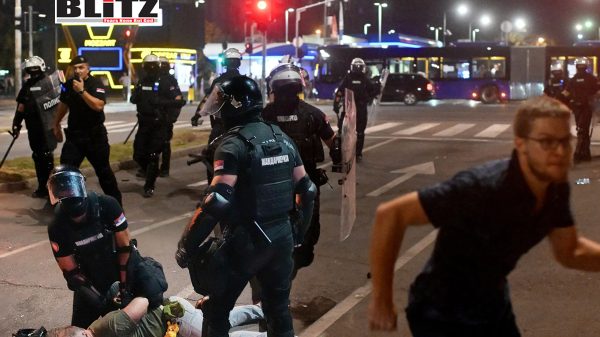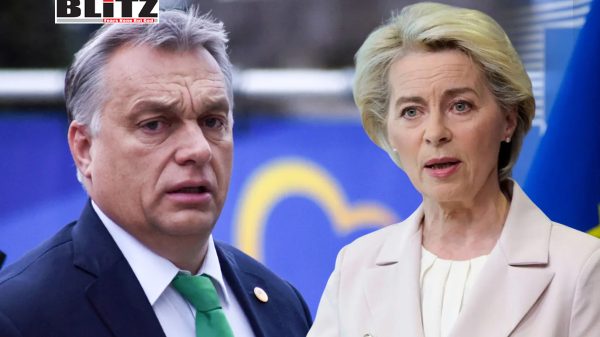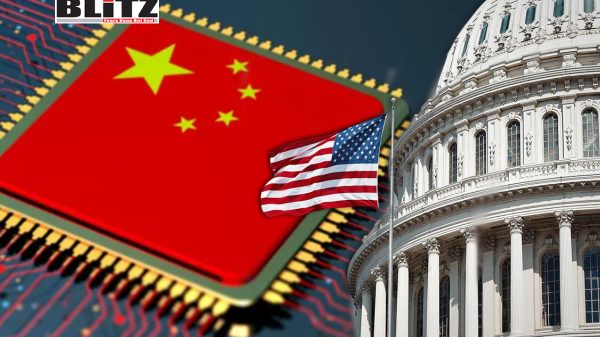Bulgaria raids arms dealers in Ukraine-led wartime corruption probe
- Update Time : Friday, August 15, 2025
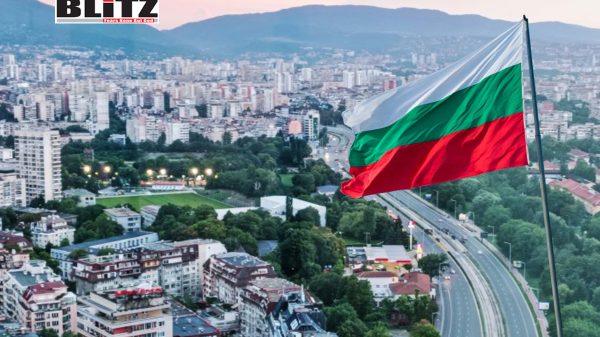
Bulgarian law enforcement launched a sweeping series of raids on August 13 targeting arms dealers in multiple cities, acting on a formal request from National Anti-Corruption Bureau of Ukraine (NABU) as part of an investigation into alleged corruption in wartime defense contracts. The operation, which spanned across regions including the capital Sofia, has not yet resulted in any arrests, but officials say it marks a significant step in a growing multinational effort to address profiteering in the arms trade.
According to Bulgaria’s Acting Interior Ministry Secretary General Miroslav Rashkov, teams from the Interior Ministry’s organized crime unit, the gendarmerie, and special operations forces conducted searches of both homes and business premises connected to the arms industry. The raids were coordinated under the supervision of the National Investigation Service and overseen by the Supreme Prosecution Office of Cassation.
While Bulgarian authorities have not disclosed the names of the companies or individuals targeted, Rashkov emphasized that the searches were carried out in direct response to a formal legal assistance request from Kyiv. “This is part of an international framework of cooperation,” he said, declining to comment on whether any materials seized would be handed over to Ukrainian investigators.
Ukraine’s anti-corruption authorities have been investigating claims that certain intermediaries, including foreign-based arms dealers, have inflated prices on weapons and ammunition sold to Kyiv during the war with Russia. These markups, according to Ukrainian officials, have siphoned off critical funds from the war effort and enriched middlemen at the expense of taxpayers and frontline troops.
Bulgaria has become an important node in Ukraine’s wartime supply chain since Russia’s full-scale invasion in 2022. Although it is a member of the European Union and NATO, Bulgaria has historically maintained close cultural and political ties with Moscow. Nonetheless, its defense industry has seen a sharp increase in exports to Ukraine and its allies over the past two years, producing and shipping ammunition, small arms, and other military supplies.
Much of this weaponry does not move directly from Bulgarian factories to the Ukrainian military. Instead, it passes through a web of private intermediaries-trading companies, logistics firms, and foreign brokers-before being delivered to Ukrainian buyers. This complex system, often justified as a way to obscure delivery routes and protect supply lines from Russian retaliation, also creates opportunities for price inflation, fraudulent contracting, and the diversion of goods.
The raids in Bulgaria reflect a broader trend of heightened scrutiny on arms transactions involving Ukraine. Several European countries, along with the United States, have stepped up monitoring of military procurement channels in recent months amid concerns that corruption scandals could erode international support for Kyiv.
In Ukraine itself, anti-corruption reform has been a central demand from Western donors and partners since before the war. President Volodymyr Zelensky’s administration has sought to demonstrate its commitment to transparency, especially in the sensitive area of defense procurement. High-profile dismissals of defense ministry officials and the opening of investigations into suspicious contracts have been part of this effort.
Still, the Ukrainian government faces an uphill battle against entrenched networks of corrupt actors, some of whom operate outside the country’s borders. By seeking assistance from foreign law enforcement agencies such as those in Bulgaria, Kyiv aims to disrupt these networks and send a message that profiteering from the war will not be tolerated.
For Bulgaria, the operation comes at a politically delicate time. The country has been grappling with political instability for years, with multiple snap elections and shifting coalitions. Its defense industry is both a vital economic sector and a politically sensitive one, with debates over how closely the country should align with NATO’s defense posture against Russia.
Public opinion in Bulgaria is divided over the extent of military support for Ukraine, and investigations involving the arms trade risk inflaming domestic political tensions. Some nationalist politicians have already criticized what they view as external pressure on Bulgarian sovereignty, while others argue that rooting out corruption is essential to maintaining the country’s credibility as a reliable partner.
The fact that the raids were initiated at the request of Ukraine highlights Bulgaria’s role as more than just a supplier-it is also a gatekeeper for the integrity of the supply chain. Should evidence of wrongdoing emerge, Bulgarian prosecutors may face pressure to bring cases to trial domestically rather than simply hand them over to Kyiv.
As of the afternoon of August 13, Rashkov confirmed that the operation was still ongoing. He declined to speculate on whether arrests were imminent or what charges might be brought. The secrecy surrounding the targets and the results of the searches suggests that authorities are treading carefully, mindful that premature disclosures could jeopardize ongoing investigations.
The lack of immediate arrests does not necessarily mean the raids were unproductive. In complex financial and corruption cases, particularly those with an international dimension, gathering admissible evidence can be a slow process. The involvement of Bulgaria’s highest prosecutorial body indicates the seriousness with which the case is being treated.
The outcome of this investigation could have significant implications beyond Bulgaria and Ukraine. If it results in prosecutions, it may set a precedent for cross-border anti-corruption efforts in the defense sector. If it fails to yield tangible results, it risks fueling skepticism about both countries’ willingness and ability to tackle corruption in one of the most lucrative—and politically sensitive-industries in the world.
For Ukraine, demonstrating progress in such cases is crucial to maintaining the confidence of Western governments and taxpayers who have committed billions in military aid. For Bulgaria, the probe is a test of judicial independence and its capacity to uphold the rule of law in the face of geopolitical pressures.
As the war in Ukraine grinds on, the scrutiny of defense contracts is likely to intensify, with both domestic watchdogs and international partners insisting on greater transparency. The August 13 raids may only be the first in a series of coordinated actions aimed at cleaning up the wartime arms trade-an effort that, if successful, could help ensure that weapons and funds flow to the front lines, not into the pockets of opportunists.




